As the president has freed himself from the “adults,” he has also weaponized American foreign policy for his personal advantage, writes Thomas Wright. This piece originally appeared in The Atlantic.
The debate on President Donald Trump’s foreign policy in his first two years in office revolved around the question of what mattered more: the policy or the tweets. Trump-administration officials, sympathetic conservatives, and a significant number of foreign government officials argued that the policy pursued by the administration was sound even though the president had a penchant for hyperbole and sensationalism. Yes, he questioned NATO, but the United States was sending more troops to the Baltics and it provided lethal assistance to Ukraine. Skeptics argued that the president was not aware of many of these policies and that his words mattered. Yes, his National Security Strategy was coherent, but he had not read it and never spoke about its contents. Over time, the skeptics said, he would impose his will on his administration. Then he would act in accordance with his visceral instincts and his daily whims.
Historians will undoubtedly weigh in on which of these two arguments was true in 2017 and 2018, but there is no dispute about the state of affairs in 2019 and looking ahead to 2020. The policy and the tweets are now fused. Trump grew frustrated with the so-called axis of adults, who sought to preserve a mainstream foreign policy. He replaced these officials with people who are too sycophantic or weak to stand up to him. In John Bolton, his erstwhile national security adviser, Trump thought he had a sycophant. But when Bolton pushed back, Trump forced him out, too. As one former administration official put it to Politico, this is not “an A Team or B Team”; what you’re “really getting down to [is] who’s left that will say ‘yes.’”
Examples are piling up that suggest the yes-men have taken over. When James Mattis was secretary of defense, he repeatedly stymied various cockamamie plans by the White House. For instance, in his new book, Guy Snodgrass, who served as a speechwriter and communications director to Mattis, reveals that Trump asked Mattis to “screw Amazon” out of a $10 billion contract for cloud computing. Mattis reportedly said, “We’re not going to do that. This will be done by the book—both legally and ethically.” By coincidence, perhaps, under Secretary of Defense Mark Esper the contract was awarded to Microsoft, not Amazon. Esper also “found” money for Trump’s border wall by raiding funds from a vital mission in Europe to deter Russia, and said that Europeans needed to do more to defend themselves.
Trump is now making policy on the fly, with little or no process or consultation. He decision to pull U.S. troops out of Kurdish-held regions in Syria and to green-light an invasion by Turkey was perhaps the most catastrophic foreign-policy move of his presidency to date. This decision gave ISIS a new lease on life, gave away any leverage the United States might have had in negotiations with the regime of Bashar al-Assad, and enhanced Russian influence in the Middle East. After outrage from Congress, Trump then backed punitive sanctions on Turkey for taking steps that he had personally endorsed.
The Syria decision is the rule, not the exception, as is the willingness of Trump’s Cabinet to go along with whatever he says, even when he reverses himself overnight. Recall his invitation to the Taliban to come to Camp David, two days before the 9/11 anniversary. The press reported that Vice President Mike Pence had opposed the decision, along with Bolton. Trump denounced the reports and Pence quickly retweeted him with the comment, “That’s Absolutely Right Mr. President. More Fake News! The Dishonest Media never contacted our office before running with this story and if they had, we would have told them I FULLY support your decision.”
As Trump has freed himself from the “adults,” he has also politicized and weaponized American foreign policy for his personal advantage: He empowered Rudy Giuliani to run a shadow foreign-policy operation to pressure the Ukrainian government to investigate Joe Biden and his son. In so doing, he has tested the mettle of the men and women who serve him.
Eliot Cohen, a professor at Johns Hopkins University’s School of Advanced International Studies and a contributing writer to this magazine, told me, “The government has the right to ask you to risk your life for your country; it does not have the right to ask you to sacrifice your character for it.” Trump has repeatedly asked his team to sacrifice their character. Some have failed and some have passed. Secretary of State Mike Pompeo fired the ambassador to Ukraine, Marie Yovanovitch, and seems to have instructed his employees to cooperate with Giuliani. He has publicly defended the unfounded conspiracy theories about Ukrainian interference in the 2016 election. Gordon Sondland, a Republican donor who once saw Trump for what he was, so desperately craved high office that he did Giuliani’s bidding and then placed himself in legal jeopardy with his testimony in the House impeachment inquiry.
Others abided by Cohen’s advice and did not yield. Yovanovitch, William Taylor, Fiona Hill, Alexander Vindman, Tim Morrison, and Bolton all registered their concerns about Trump’s politicization of Ukraine policy while serving. The first five have testified to that effect. Bolton has yet to do so. Bolton is particularly interesting. I, and others, have criticized him on the substance of his foreign-policy views, but based on what we know, he behaved with honor when confronted with an abuse of power—a stark contrast with Pompeo. None of these people wanted to undermine the president and none would have if their disagreements had been confined to policy. It must particularly gall Republicans such as Bolton and Morrison to aid a Democratic-led impeachment process. The nonpartisan bureaucrats find themselves unwillingly thrust into the public eye. But democracy is built on such slivers of courage. And then there is the whistle-blower, who went one step further and actually reported the wrongdoing when he or she became aware of it.
Trump faces his moment of reckoning in the impeachment process and the trial that is likely to follow. However, with partisanship the dominant force in Washington, D.C, he is likely to be acquitted by the Senate. This raises the question of what Trump’s foreign policy will look like next year. What would a second term look like should he win reelection?
We know he is becoming more paranoid and distrustful of those who will not do his bidding. He called Taylor and Vindman Never Trumpers even though there is no evidence to that effect, and then called Never Trumpers in general “human scum,” a charge his press secretary, Stephanie Grisham, defended. Some Republicans hoped that over time Trump would relax his ban on those who signed Never Trump letters during the campaign, particularly for those signatories who recanted after he won the election. This now seems very unlikely. The ban will stay in effect and seems to be widening to anyone who has ever uttered or endorsed a critical word about the president.
The National Security Council is being downsized—ostensibly to improve efficiency but more likely because Trump distrusts the bureaucracy. Some of the jobs are being filled by relatively junior personnel with no background in the region they are responsible for. One former official, who spoke under the condition of anonymity in exchange for candor, expressed deep concern that the foreign-policy capacity of the U.S. government is being hollowed out from where it was a year ago—a time when alarm bells were already ringing about unfilled positions.
If Trump is reelected, he is unlikely to turn over a new leaf. He will feel completely vindicated and more confident in the superiority of his own judgment on foreign policy. The tumultuous events of the past month will become the norm, as crises grow in frequency and scale. As Senate Republicans serve as jurors in a trial to remove Trump from office, they will no doubt worry about splitting their party and losing the 2020 election. They should also worry about the consequences of winning. They can no longer take comfort in the expectation that Trump will be constrained by good advisers or that he will normalize over time. The American-led international order could survive four years of Trump if we’re lucky. On this trajectory, it cannot survive eight.
The Brookings Institution is committed to quality, independence, and impact.
We are supported by a diverse array of funders. In line with our values and policies, each Brookings publication represents the sole views of its author(s).

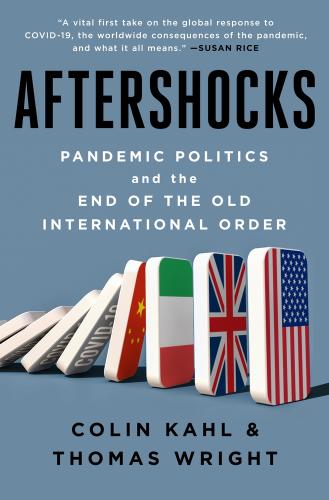


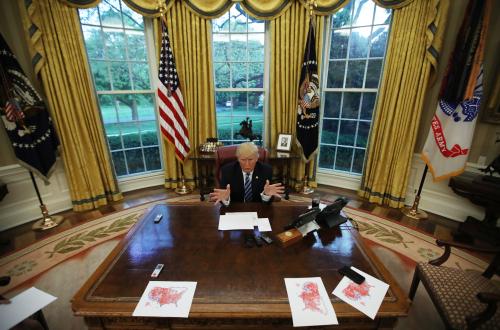
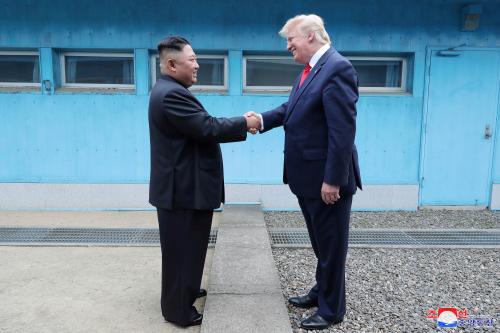
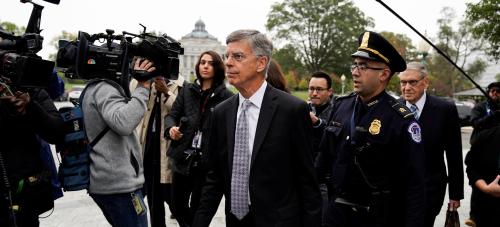


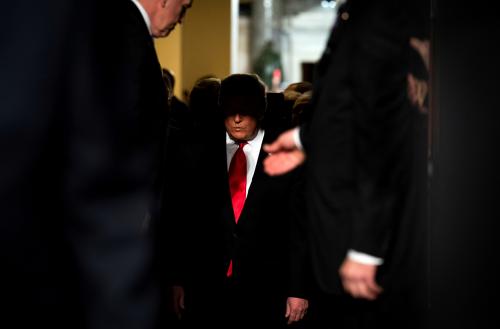
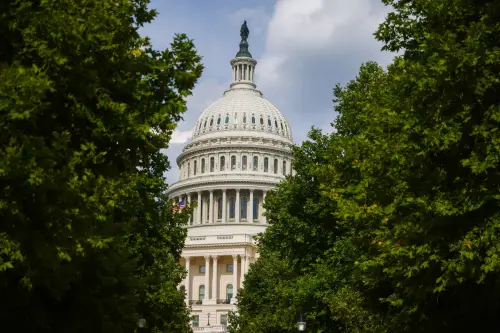
Commentary
The Yes-Men have taken over the Trump administration
November 5, 2019